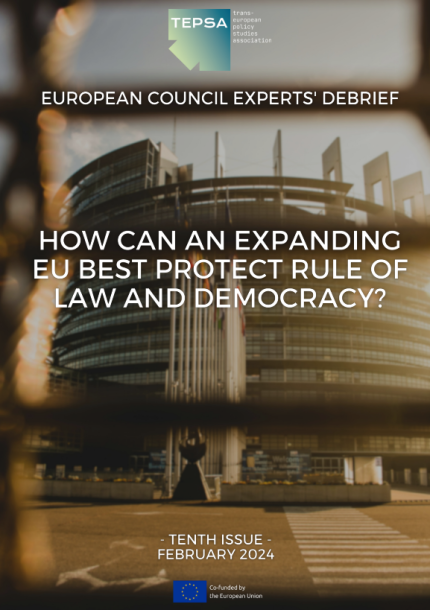This TEPSA’s EUCO Debrief addresses the sensitive issue of the Rule of Law. 15 experts from the TEPSA network have provided their response to the following question: How should the EU best use its existing mechanisms for protecting the Rule of Law (including article 7 TEU; EU budget conditionality), and how should it adapt them in preparation for enlargement to EU 30+?
This is an excerpt from András Rácz's analysis. His full contribution is available here.
The previous enlargements offer important lessons in ensuring rule of law
Two main lessons may be learnt from the two decades of experience gained since the 2004 enlargement. The first one concerns the accession process, i.e., the period when the given countries are not yet inside the EU. Experience of the 2004-2007 period demonstrates that the institutions created back then did not provide a lasting guarantee for ensuring the rule of law. In some countries they functioned very well, for example, in Estonia, Slovenia or the Czech Republic. However, in others, major backsliding took place, even though all 12 countries had to go through the same accession process.
The second lesson is about protecting the rule of law in those countries that are already within the EU. So far, the most successful tool has been the consistent use of financial incentives, including punitive ones. Various infringement procedures, and even the Article 7 TEU procedure have all largely failed to prevent systemic violations of rule of law. This has been particularly so, because the perpetrating countries, once inside the EU, could slow down and already hamper the procedures from within.



